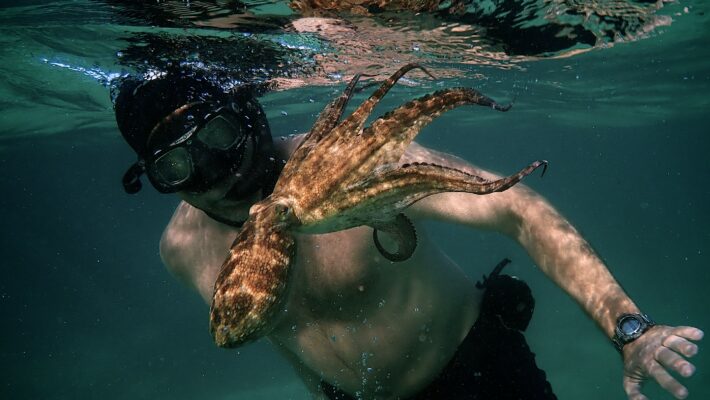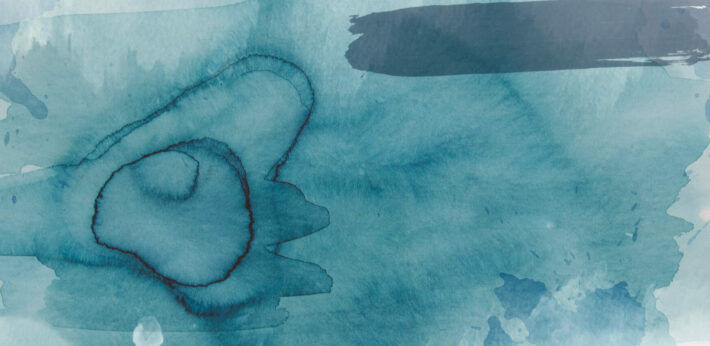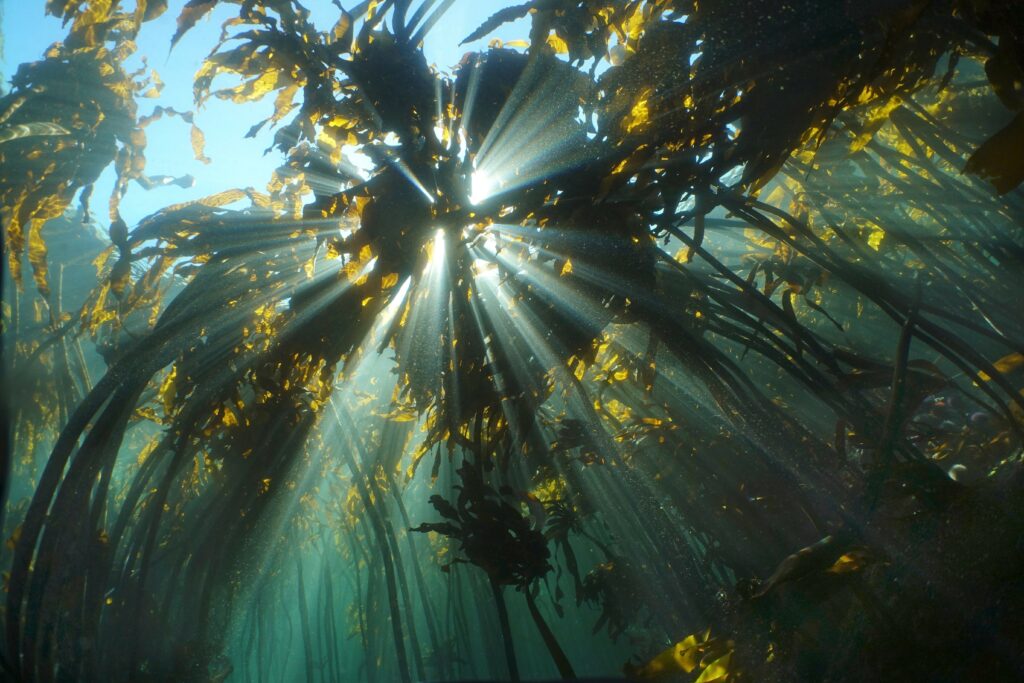Deep Connections: Fostering Emotional Connection for Ocean Governance Lessons from an Oscar-winning Octopus

Photo: Ross Frylinck

The diversity of human connections to the ocean is equal to the diversity of our current and past ocean experiences, practices, resources and values. The harvester on the shore may remind you that the ocean sustains her family and a fisher may claim that salt water runs in his veins. Divers are drawn by the beauty and colour of underwater seascapes and sailors find joy in the power of sea winds. The soul surfer might explain the pleasure of riding waves and ocean swimmers talk of the freedom of the open sea. Healers advocate the spiritual power of the ocean and many communities recognise the ability of the sea to cleanse and renew. Anthropologists tell us that modern humans developed their brain power and that the origin of art, the use of tools and conceptual development was fuelled by the rich nutrients and fats provided by seafood harvested from temperate shores and ancient sea forests. Stories of people connecting with the sea and marine mammals in particular are not uncommon but recently a unique story about a man and an invertebrate catalysed global interest and revealed that deeply intimate relationships with other sea creatures are more than possible.
The multi-award-winning Sea Change Project documentary My Octopus Teacher aired on Netflix in 2020 and was an instant success – often described as an antidote to the global pandemic that dominates this time. This beautiful film chronicles the slow development of a deep friendship between a filmmaker, Craig Foster, and an octopus who shares the many mysteries of the intricate kelp forest ecosystem at the tip of the African continent. The Sea Change Project team are working to build and deepen human connections with the kelp forest and the ocean. Through stories, books, music, research and film, they have sought to and succeeded in raising the profile of the Great African Sea Forest and this awareness was elevated to great new heights by their remarkable Oscar-winning documentary. Craig ’s unusual friendship and daily connection with an octopus has lessons for everyone and especially those with a responsibility towards the oceans.
Sir Richard Branson recently interviewed Craig Foster to learn more about his experiences and insights and highlighted one of Foster’s key reflections about threats to our ocean. Foster’s response “The greatest threat in some ways to our oceans and our planet is the cooling of the human heart towards nature” is a poignant reminder of the dangers of disconnection with our ocean. Craig’s experience shows us the importance of developing, nurturing and deepening our connections with the sea and its creatures. Importantly, he reminds us that we are not apart from ocean ecosystems but part of these places. Significantly, his experience surfaced not only his own sense of vulnerability but our collective vulnerability and this catalysed personal change. Foster reminds us that the whole ocean is “really just One Ocean – it’s All Connected”. This reflects the core ethos of the transdisciplinary research underway through the One Ocean Hub (see also here, here and here). Governance approaches that recognise and account for ocean connectivity including our diverse human connections, land-sea connectivity, ecosystem and genetic connectivity and the connections and shared consequences from currently disconnected sectoral management approaches. An emerging more integrated approach that connects work across sectors, disciplines, scales, diverse stakeholders and communities can help provide the changes needed by our ocean and us.
Securing just and effective ocean protection is one of the current critical challenges for ocean decision makers and the underlying researchers who need to develop knowledge to guide these efforts. Support for South Africa’s Marine Protected Areas has suffered from challenges linked to their apartheid past, other socio-economic problems and challenges in consultation, community engagement and limited participation in management (see also here). The part of the Great African Sea Forest where My Octopus Teacher was filmed is within the Table Mountain National Park Marine Protected Area and a broader “Seas of Good Hope” Ecologically and Biologically Significant Area. This zoned Marine Protected Area has significant compliance challenges and limited community support and would benefit from new work to strengthen protection. Foster calls for a sensitive and compassionate approach in achieving ocean protection with cognisance for those dependent on the ocean’s resources, consideration of African perspectives in conservation and attention to social justice. Effective protection needs community support which may depend on improved consultation, planning and protected area design with more co-operative management of ocean areas. Increased ocean protection is certainly needed, including through innovative models that both support and are supported by coastal communities, as is stewardship of unprotected parts of the ocean. Like Craig’s slow earned trust of a wild octopus, the establishment of meaningful ocean protection and stewardship takes time. Wild places that help regenerate ocean resources, replenish adjacent areas, combat climate change and provide opportunities for reconnection with nature are a key component of ocean consrvation.

Diversified knowledge sources and integrated planning and management that accounts for the full spectrum of ocean connections is central to the needed changes in ocean governance. The Sea Change Project team have demonstrated the value of showcasing the intimate connections within a kelp forest ecosystem including human elements. They have effectively fostered emotional connection to the ocean and as such My Octopus Teacher won the Oscar in the best documentary category – a significant achievement. This well deserved accolade reflects the beauty and power of a unique story, which has sensitised us to our responsibilities – to ourselves, our communities, the ecosystems we are part of and to future generations.
As negotiators and decision makers weigh up the critical choices that will determine the future of our oceans and our planet, they can benefit from the insights shared by Craig and his Octopus Teacher. Decisions are needed that recognise and maintain our many ocean connections and the myriad of benefits we derive from the sea including the less tangible spiritual and cultural heritage. A range of approaches (including based on arts and human rights) that draw from the diversity of human perspectives, values and approaches for united and holistic marine conservation efforts offer hope for the future of our ocean and our planet.
Professor Kerry Sink is a principal scientist and manager of the Marine Programme at the South African National Biodiversity Institute and a Research associate at the Institute for Coastal and Marine Research at Nelson Mandela University. Kerry is a co-director and executive team member of the One Ocean Hub and the Principle Investigator of the NRF funded Deep Connections project (Grant 129216) facilitated through the African Coelacanth Ecosystem Programme.